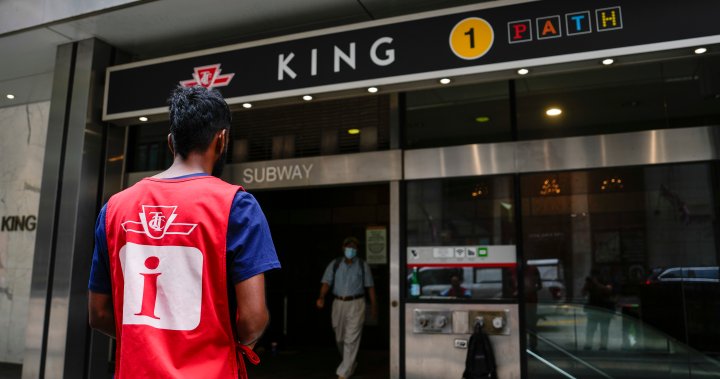Summarize this content to 2000 words in 6 paragraphs
The coming year will bring a slew of new full weekend closures to subway stops around Toronto as the city tries to keep its aging transit system in shape, install new cell service and construction continues on new projects.
The TTC unveiled its capital plan for 2025 in a presentation on Monday, complete with details of how often the spine of the city’s transit network would be closed for days at a time.In total, the TTC is planning to implement 26 full weekend closures on Line 1: Yonge-University. They include four closures for state-of-good repair, 13 for engineering work and nine to accommodate work on the planned Ontario Line.On Line 2: Bloor Danforth, the agency is planning 23 full weekend closures, six of which will be for Rogers to install the infrastructure needed to handle a new 5G cell network for its customers in subway tunnels. Other closures on that line are for state-of-good repair, engineering work, automatic train control and the Scarborough Subway Extension. The shutdowns are an increase from the 25 full weekend closures implemented through 2024, according to a report that will go before the TTC board.
Get daily National news
Get the day’s top news, political, economic, and current affairs headlines, delivered to your inbox once a day.
One of the reasons the TTC favours closing sections of its subway for the entire weekend is the amount of time it offers to work on the tracks.Every night, there are 90 minutes of what the agency calls tool time — a period when trains are no longer running and workers can make fixes. Closing a section for the entire weekend equates to five nights’ of work, the TTC said.
More on Toronto
More videos
The planned closures for 2025 come after a year where so-called slow zones, introduced due to aging infrastructure, added to commute times on both Line 1 and Line 2.At one point last year, the TTC had 85 slow zones across its network. On just one section of track — from Wilson to Union stations on Line 1 — slow zones added a total of 14 minutes to the average journey.While many have since been removed, the agency said it needs to continue closures in order to keep on top of the updates and upgrades Toronto’s subway network requires.“We know closures and diversions can inconvenience people, but they are unavoidable,” a spokesperson for the TTC told Global News. “If we are going to keep the system safe, reliable and in a state of good repair, while also accommodating expansion and addressing the slow zones, we need time to do the work.”
© 2025 Global News, a division of Corus Entertainment Inc.


